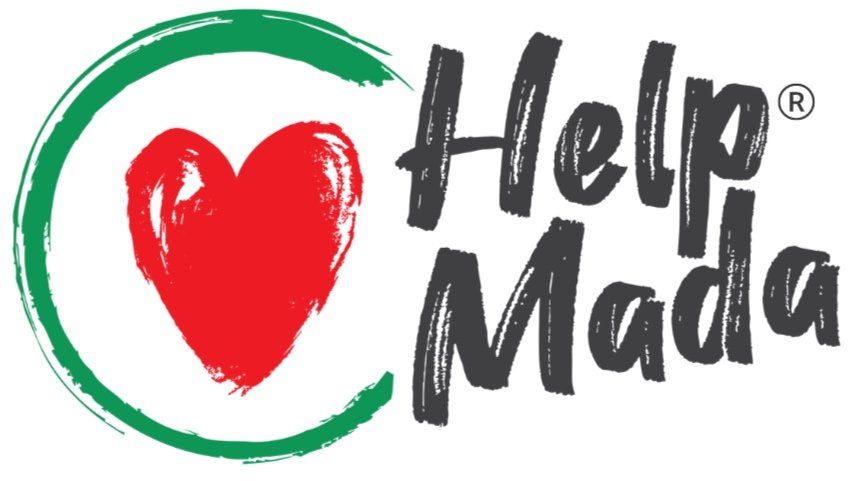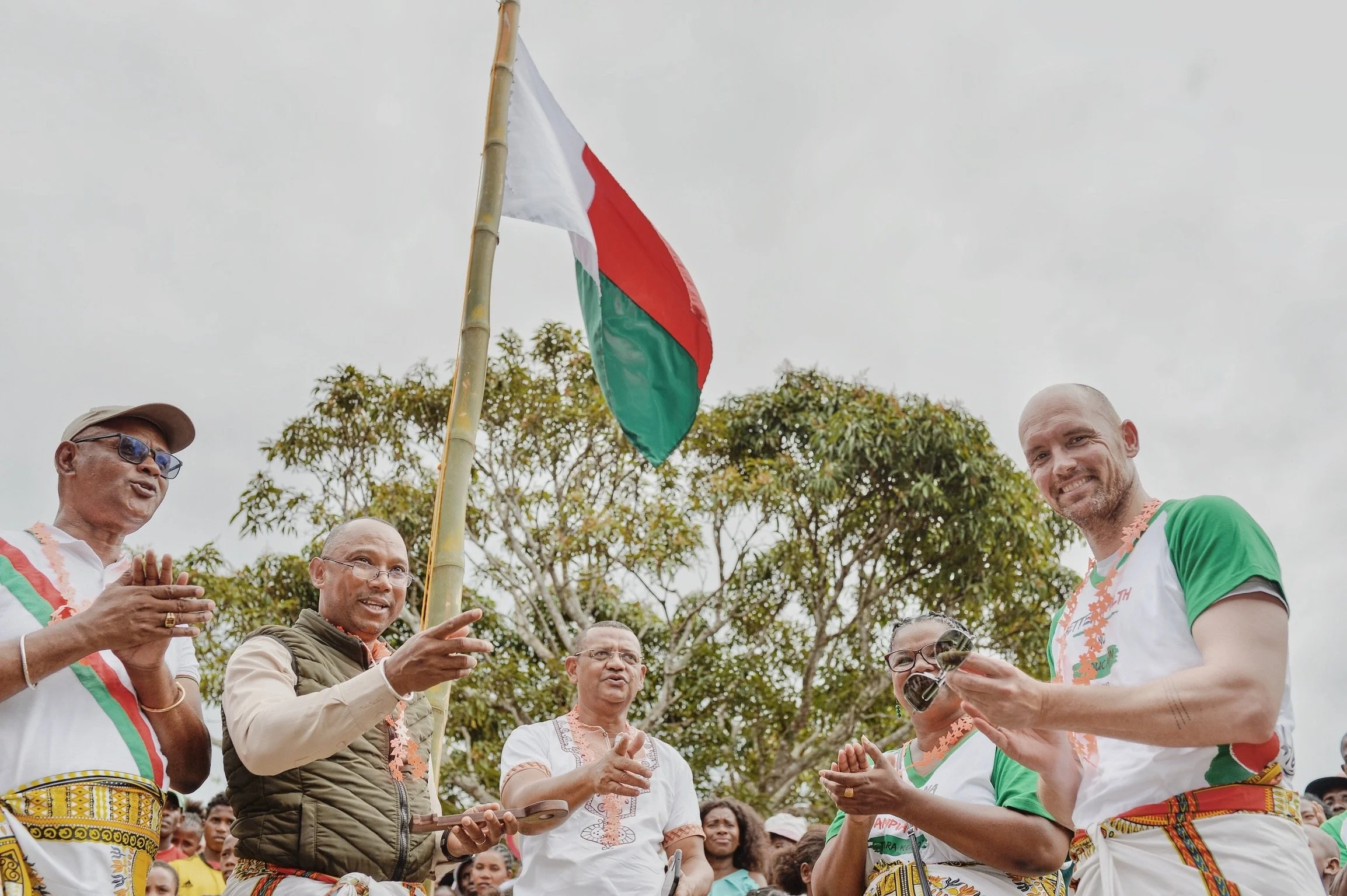
Vanilla in particular is one of the most frequently grown goods in Madagascar and therefore, it is also called as ‘black gold’. There is a long process between the harvest and the export, therefore Nutramaxx® founder Michael Behr departed on the journey to find out more about the local working conditions in fall 2019. He knew that Madagascar was a poor island state, but he did not know exactly what to expect. He had never been in a developing country of this level before.
The on-site infrastructure obviously contrasts the one in Germany: Life takes place outside in small villages which are kilometers away from each other. Transport facilities are limited, people live in mud huts. But unlike what Michael had seen in pictures or documentaries, he did not see any famine.
„I was welcomed in a very friendly manner, people are content with the little they have, laugh a lot and give a lot even if they do not have much.“
Life there is simple. For some it may be unimaginable to picture life conditions in Madagascar since for the most of us it lies so far away. But one thing that Michael noticed right away: People are happy and content with the little they have. They showed such warm and open behavior and he could not remember many cases in which he had felt the same amount of kindness from people before.
But what Madascar really lacks is a proper medical care as well as educational opportunities. Because life often takes plane in a small village people have to walk many kilometers until they reach a medical facility. There is no exception in the case of an emergency. At the same time children lack in educational opportunities which will allow them a better qualification for the job market. If they could get easier access to schools it will give them the chance to change their lives for the better in the long run and to fulfill their dream jobs and careers as well.
Michael met the people of the NGO Help Mada in Madagascar which was founded by his vanilla supplier Planifolia Group. In the past years they have successfully built many infirmaries as well as schools and Michael wanted to contribute to these projects. He thought financial aid would be a great solution to forward the projects. He knows exactly where the money goes, stays in contact with the project leaders at any given time and keeps an eye on the current status personally. With his own non-profit organization Help Mada he wants to collect donations to help Madagascar directly.
Madagascar: What you need to know
Many have heard of the island state of Madagascar, but the ideas people have of the country often have little to do with reality. First of all, it is the fourth largest island in the world and is even called the "eighth continent". Many have no idea how large an area Madagascar actually is. For comparison: Madagascar's land area is 587,000 square kilometers, about twice the size of Germany.
587.000
Square kilometers
27.7 Million
Inhabitants (2020)
The large country hides many different facets of nature. On our last trip we also noticed how different Madagascar's nature can look. While the capital Antananarivo is characterized by reddish and dry laterite soil, the fertile soil in Antalaha shines in lush green.

Madagascar from above
From beaches to mountain landscapes, green paddy fields to baobab or rainforests, hardly any other country offers such a variety of nature. In terms of climate, rainy and dry seasons as well as cyclones must be expected in Madagascar. Summer with warmer temperatures and the beginning of the rainy season is in September of a year and ends in April. On average, the temperatures are then between 29-35 degrees, in the winter months, for example, it can drop to single-digit degrees in the evenings.
Above all, one animal species is particularly well known in Madagascar: the lemurs. Contrary to what is shown in the animated film "Madagascar", there are no lions, zebras, giraffes or hippos on the island state. However, many national parks are home to a wide variety of lemur species, some of which only live there.

Life in Madagascar is very different from the one Europe. The standard of vehicles, roads, hotels, hygiene and safety is usually lower. We didn't notice any crime on our trip, however, in some places in the capital, Antananarivo, our drivers warned us to keep the car windows closed. Thefts are more common. Sometimes we were also advised not to take certain roads alone. Our impression was that there are very few tourists in Madagascar, which is why you are automatically noticed.
Madagascar's Human Development Index ranked 173rd out of 191 countries in 2019 - unfortunately with a downward trend.
173
Human Development Index
(Out of 191)
The warm-heartedness of the people, which makes up the Malagasy culture, is remarkable. Despite a low standard of living, people bring happiness and ease into their lives. Music, dance and singing are an expression of this attitude towards life. At the same time, we have experienced much gratitude and generosity on our journey.





